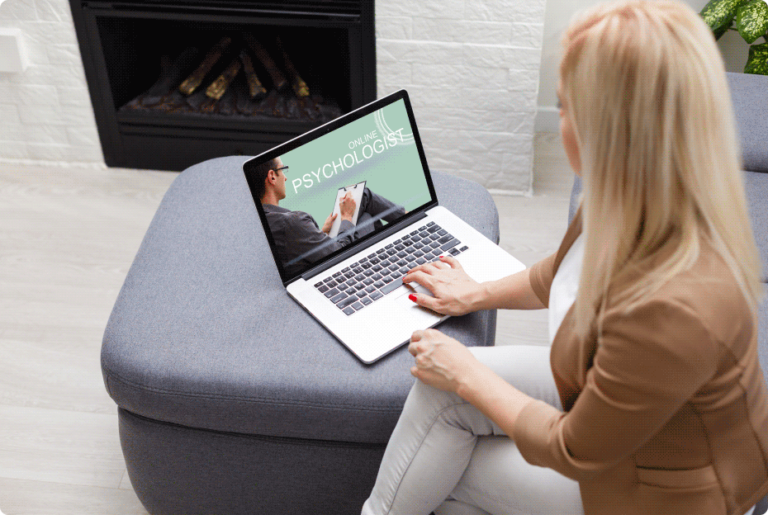Seventy-percent of people with ADHD have sleep issues.
How these people deal with those issues — or their failure to successfully deal with them — has a major effect on their ADHD symptoms, and their overall health.
In a recent episode of “Refocused: A Podcast All About ADHD,” hosted by Lyndsay Guentzel and sponsored by ADHD Online, ADHD and sleep expert Stephen Lange, PhD, talked about sleep issues in general and for people with ADHD. Lange is a psychologist who focuses on sleep and ADHD and provides healthcare services to the U.S. Coast Guard as a Coast Guard auxiliarist.
The ADHD and sleep podcast is just one of the recent Refocused podcasts that tackled some important issues for people with ADHD. Here are highlights of three recent podcasts:
Episode 76 — ADHD, Sleep Hygiene and the Recipe for a Good Night’s Sleep Lyndsay and Lange talk about why people with ADHD are more likely to have sleep problems. And they talked about expert tips on improving sleep — including fostering good “sleep hygiene” that can help people sleep. And the challenges in putting in place some of those good sleep hygiene rules.
Lange: “The problem with sleep hygiene is we all know it works and we all know it’s good for us. And we don’t do it. Anything in the list of good sleep hygiene, people resist. For example, ‘No caffeine after 2:00 PM.’ It’s relatively easy to do, except people don’t want to do it. … ‘No nicotine after 2:00 PM.’ Very difficult if you’re a smoker. ‘Getting sun on your face,’ I think, is pretty easy. If I were working in a place that was very negative about taking breaks and stepping away from your desk, I would make a point of talking to my supervisor about a need for that. And maybe get a doctor’s note as a disability accommodation, especially if having ADHD. If I were running a company with employees, I would insist that people take your lunch away from the office, don’t eat lunch at their desk.”
Episode 80 — The Power of Movement: Identifying the Why Behind Exercise
Lindsay talks with Alli Cost, an occupational therapist and a managing partner of Foundation Training, a group that helps people relieve chronic pain through special exercises. Lindsay and Alli talked about how basic and uncomplicated exercise can help anyone, and can be especially helpful to combat symptoms of ADHD.
Alli: “One thing is we start too big (in trying to start exercising). Meet yourself where you’re at. No one starts marathon training running 14 miles. They literally start by getting their pair of shoes and going for a five-minute walk. So start, literally, as small as possible. Smaller than you think, so it’s almost embarrassing. So if your goal is to get out and do some amount of exercise, say, ‘Okay, I’m literally going to go for a two-minute walk. Two minutes. I’m just going to put on my shoes, walk out the door, take five breaths, walk around the block, come back in.’ And getting consistency, because what you want is that routine. … The same way that showering most days becomes part… You just want it to become routine.”
Episode 81 — The Adderall Shortage: Looking at America’s Mental Health Crisis with Michael A. Cohen
Lindsay sits down with Michael A. Cohen, a columnist for MSNBC who has ADHD and wrote an April 29 opinion piece for The Daily Beast news website titled: “The Adderall Shortage is the Mental Health Crisis No One’s Talking About.” Adderall is a prescription medication that is used by millions of people with ADHD. There has been a severe shortage of the medication in the U.S. since the fall of 2022.
Cohen writes in the piece, and reiterates in his conversation with Lindsay, his dismay that the U.S. government and others aren’t taking the ongoing Adderall shortage more seriously.
Cohen explains why he decided to write the opinion piece:
“I saw other people talking about this issue and I realized I wasn’t alone in struggling with trying to find a medication that I usually take. I went through this last winter — where I had like a two-week period where I did not have medication. I couldn’t get the medication I usually use. And it was terrible. It was really difficult to do anything.”
He believes the limited reaction to the shortage from leaders and others without ADHD is because they don’t understand ADHD.
“It’s one of these things where people who don’t have ADHD, it’s hard to understand it. I think for a lot of people, it may not seem like a real crisis. It may not seem like a real problem, because it’s hard to sort of understand what it’s like when you don’t have this kind of medication, and when you suffer from this affliction.”
He says he’s been disappointed in the lack of urgency to the problem in the federal government and on Capitol Hill.
“Millions of Americans take these drugs. Millions. And except one congresswoman from Virginia, the focus on the Hill was non-existent. People just didn’t want to get involved in it. This is a serious issue, and it affects millions of people. And it was striking to me … that in the corridors of power, this wasn’t seen as something that was more important.”
Take a listen to these podcast episodes, and many others, at the Refocused podcast website.






